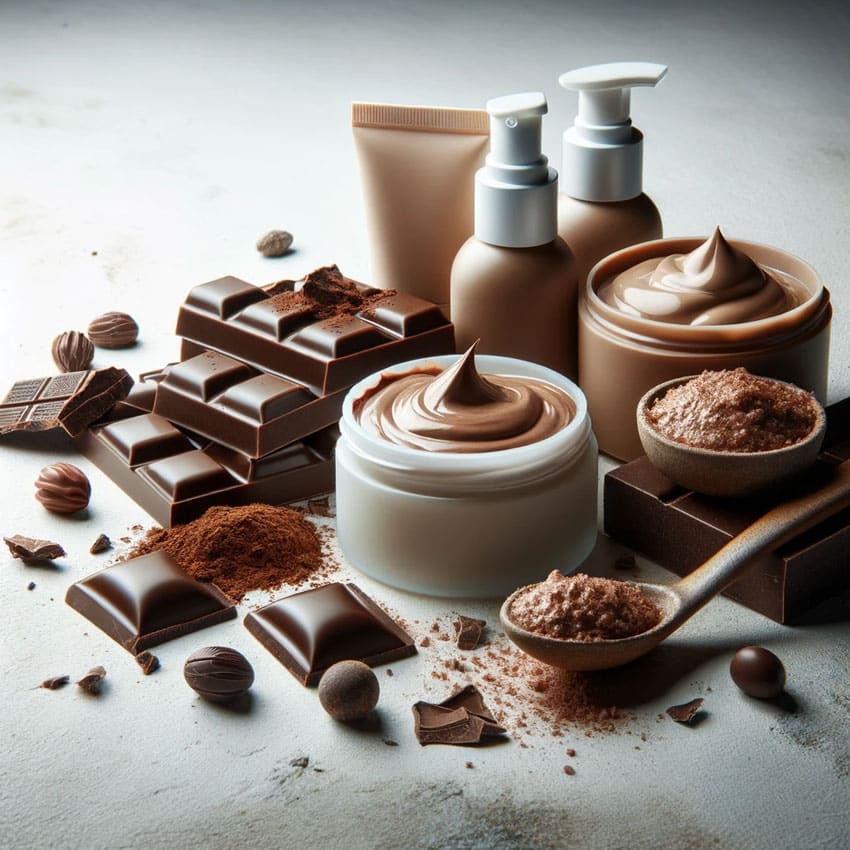The age-old question, “Does chocolate cause acne?” has lingered in the minds of many, stirring up a mix of myths and facts in the realm of skincare. In our article, we delve deep into this controversial topic.
By examining scientific studies and consulting dermatological experts, we aim to unravel the truth behind this popular belief.
This exploration not only addresses the direct impact of chocolate on skin health but also broadens the discussion to include how diet, in general, affects acne.
Our goal is to provide readers with a clear, evidence-based perspective, enabling them to make informed decisions about their dietary choices and skincare routines.
Understanding Acne and Chocolate
The relationship between chocolate consumption and acne has been under scrutiny for years. This section explores the elements of chocolate that are often called into question, how diet plays a role in skin health, and clarifies the connection between chocolate and acne.

The Composition of Chocolate
Chocolate contains a range of ingredients, chief among them cocoa, sugar, and in many cases, milk and fat. The type of chocolate—be it dark, milk, or white—largely determines its impact on the body.
Dark chocolate typically has a higher cocoa content and less sugar and milk, whereas milk chocolate has more dairy and sugar. The presence of sugar and dairy in chocolate is thought to be a concern, as they can affect hormonal balance and inflammation, potentially leading to an increase in skin conditions like acne.
How Diet Affects Skin Health
The skin is an organ directly affected by dietary choices. High-glycemic foods can cause a rise in blood sugar and consequently in insulin, which may increase the production of sebum and androgens, promoting acne.
In addition, the hormones present in some dairy products may influence the sebaceous glands, leading to the production of more oil. Diet can influence hormones like insulin-like growth factor (IGF-1) and can exacerbate conditions such as inflammation, contributing to the development of skin problems.

Debunking the Chocolate-Acne Myth
While chocolate has been blamed for worsening acne, research does not conclusively confirm chocolate is a direct cause of this skin problem. Instead, specific components within certain types of chocolate, primarily high sugar content and dairy additives, may be linked to an increase in acne for those with insulin resistance or sensitivity to these ingredients.
It is important to differentiate between high-sugar, dairy-rich chocolates and those with a higher cocoa content, which may have less impact on acne development.
Contributing Factors and Prevention Strategies
Understanding the complex interplay of factors contributing to acne is essential for effective prevention and management. Targeting these factors can help maintain healthy skin and reduce the likelihood of breakouts.

The Role of Hormones and Genetics
Hormones, particularly during puberty, can significantly influence sebum production, a key factor in the development of acne. Increased androgen levels, such as testosterone, can lead to excess oil, heightening the potential for clogged pores and breakouts.
Genetic predispositions also play a role, as some individuals may be more inclined to experience acne, irrespective of their skincare routine.
Effective Acne Management and Treatments
Consistent skincare, including the use of products with benzoyl peroxide and anti-inflammatory agents, supports skin health by targeting bacteria and reducing inflammation.
A balanced diet rich in omega-3 fatty acids, protein, and antioxidants—found in fish, beans, fruits, and vegetables—supports a healthy complexion by potentially regulating blood sugar and promoting gut health.
Consulting with a board-certified dermatologist can lead to personalized treatment, including prescription medications, to manage hormone levels and combat persistent acne effectively.

